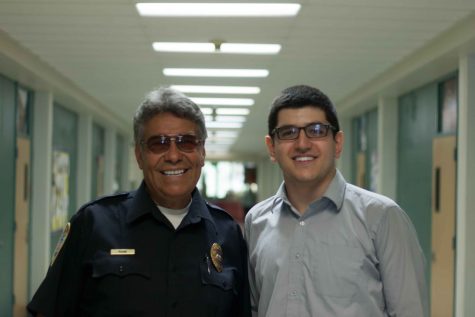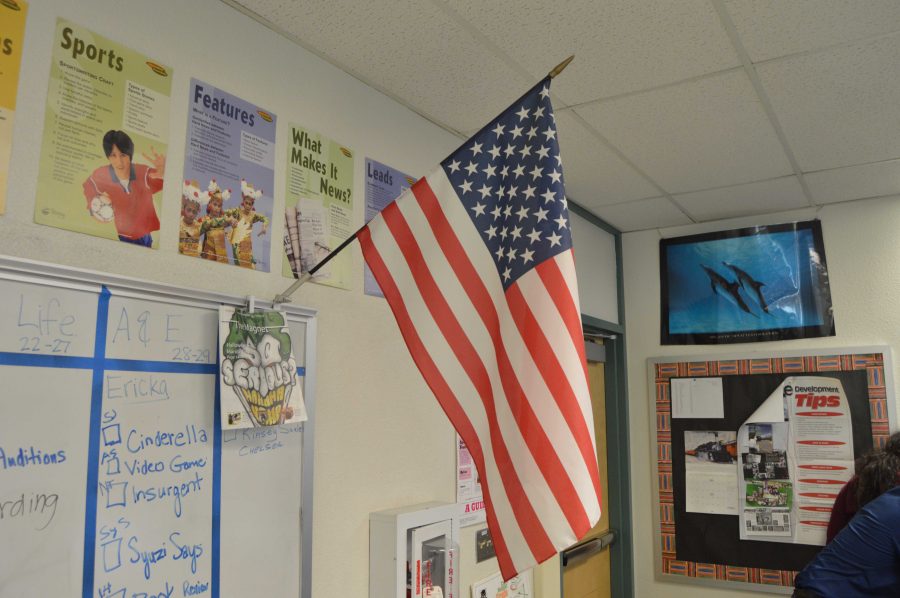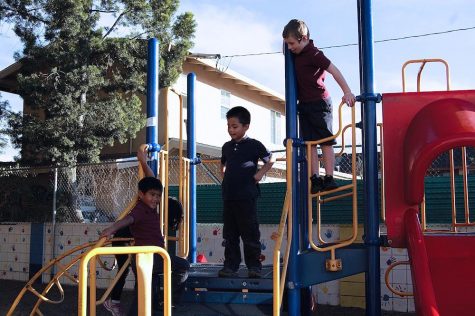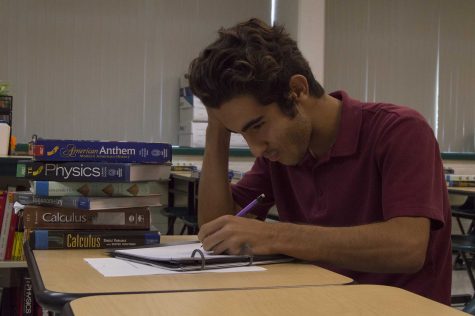More tests invade schools
Photo taken by Hayk Martirosyan
The US flag is high in one of many classrooms. Nearly all classroom in American schools bear the American flag and attempt to teach the students about civic rules. For this same purpose the Civic tests are added, yet their success is very questionable.
On Feb. 25 a new test was implemented in Arizona high schools as a requirement for a high school graduation. The test is a copy of the United States of America Citizenship test given to immigrants that enter US, the purpose being that if an American student can’t pass the basic citizenship test, then they should study more in school. The test itself shouldn’t be too hard, as it includes questions like “Who was the first U.S. president?” and “How many stripes does the American flag have?”.
This idea grew out of the Joe Foss Institute (JFI), an organization “established to promote an appreciation for America’s freedoms, public service, patriotism and integrity.” The organization’s CEO, Lucian Spataro, had noted from meeting many students across the nation, that the students are not ready for the America of tomorrow.
The reason for this is the standardization of schools, according to the JFI. Every school is now obliged to follow a state set standard and to teach exact set of things. Unfortunately, these exact things don’t involve civics, or the basic things of American society — things like how the U.S. government is run, how elections work, how many amendments does the U.S. Constitution has. Spataro and his board stated that such knowledge should be common among every American.
Yet a survey conducted by the board of JFI, during which they talked to educators around the country, proved that most students lacked the most basic of skills in civic knowledge. Spataro found this worrisome, as he believes there’s little future in American politics if the youth doesn’t even remember how their basic elections work.
The reason for this failure, according to Spataro, in studying civics, is simply because the subject is not tested in schools. Standardized state tests mostly center around S.T.E.M. topics, that is Science, Technology, English, and Mathematics. This leaves behind common knowledge of politics and history. And so, to solve this, JSI came up with the civics test that would push students to learn basic American history and civics topics. As Spataro stated, he believes that “if it is tested, it is taught.” And here were all problems lie.
I have no problem with a new mandatory class for civic knowledge, or an added chapter in history and government classes, something like a precursor chapter that covers this information. But having a test such as the one in Arizona is just pointless.
In all my 11 years of studenthood, I have learned the fatal flaw about tests, the one that Spataro contradicts. Tests do not educate. They waste time, stress students, and then just fade into nonexistence as if they never happened. I am not the only one to speak so. The state of Arizona has adopted this practice and many teachers in the state complain that while the test is easy, and they are sure in the abilities of their students, it is still annoying to have to take time off of their basic education and spend time practicing for a new test.
The bigger argument against the test is how it fails to achieve its own goals. The test doesn’t teach anyone anything. One single test in four years won’t teach most people any civic knowledge, no matter how much they study.
And while I can’t say that I am speaking for all students, I can say that for myself, having to prepare for another test, however easy it is, is a futile attempt to learn something that I could learn far better if it was simply integrated into my normal classes as an extra chapter. At this point, 18 states have already accepted the Civic Education Initiative, as the test is referred to, and there are chances it shall spread further.
Should the test ever walk into Clark in its current form, let this be my little form of protest.

INTERESTS/HOBBIES: Gaming, Reading, movies.
EXTRACURRICULAR ACTIVITIES: KATS, Mock Trial.
THREE WORDS TO DESCRIBE ME ARE: I killed someone.
IN...













